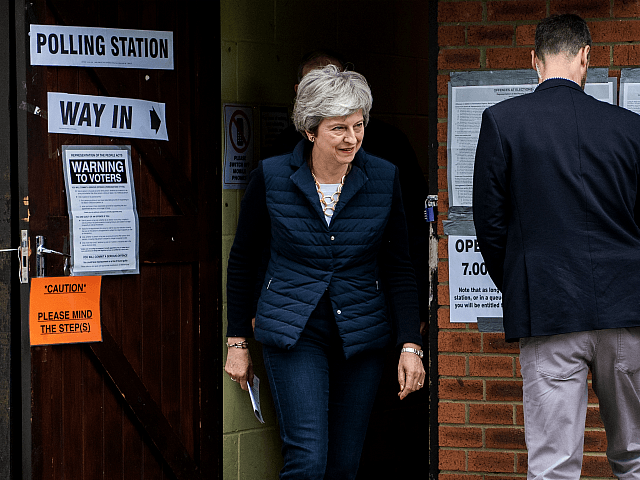The establishment parties have taken major losses in local elections in England, with both the Conservatives and Labour losing council seats while the Liberal Democrats and independents have gained seats in the hundreds.
Saturday, May 4th, 10am UPDATE — Final Results. Major Losses for Conservative Party
Final results from all 248 English councils are in and the Conservative Party have lost 1,334 councillors — higher than even the highest polled prediction of 1,100.
Labour, which was predicted to pick up seats in the hundreds, actually lost 82 seats.
The anti-Brexit Liberal Democrats were the biggest winners, gaining 703 seats. UKIP lost seats, with the Greens and independent candidates making gains, according to the BBC.
The Tories were expected to suffer losses with voters frustrated with Prime Minister Theresa May failing to deliver Brexit on time, with many voters spoiling their ballots with pro-Brexit messages.
18:00 UPDATE — Tories Lose More than 1,000 Seats
Results are still being counted but according to Sky News’s running count, the Conservative Party has lost 1,072 seats, in line with some early predictions from pollsters, and lost control of 42 councils.
While the Labour Party was predicted to pick up hundreds of seats, they, too, have lost at last count 86 seats, and five councils.
The pro-Remain Liberal Democrats have picked up 581 seats and 11 councils, UKIP has lost 131 seats, while other parties and independents have gained in total 708 seats.
It is expected final results will be announced Friday evening.
This news item is now closed and the original story from below Friday can be read below.
As results for local elections in England continue to roll in, the Conservative Party under Theresa May has already lost over 400 councillors, with pollsters predicted these losses could double by the time the counting is over — but voters have also turned on the Labour Party, in what looks to have been a bad night for the two-party establishment.
It was long predicted that the local elections would be a bloodbath for the Tories after Theresa May alienated Leave voters by pursuing a deal with the EU which retains many aspects of EU membership and delayed Brexit twice, despite many promises she would not do so.
The Labour opposition, however, does not appear to have benefited from Mrs May’s misfortune, as is typical in such elections, and has lost over 80 councillors itself — likely due to its own ambivalent stance on Brexit.
The night’s big winners so appear to be the Liberal Democrats, a much-diminished political force which has nevertheless managed to crystalise the support of diehard Remain voters by billing itself as the anti-Brexit party, and independent candidates, who have garnered an unusually high share of support where they can.
Nigel Farage’s Brexit Party, which has surged to first place in polls for the European Parliament elections, was not standing in the elections, and the UK Independence Party (UKIP) which he led formerly had to significantly scale back the number of candidates it put forward compared to the last local elections, leaving many voters without an explicitly pro-Brexit party to vote for.
However, there are a few bright spots for the Gerard Batten-led party: while its number of councillors has fallen overall, with diminished support in some areas where it did stand, it has captured some seats in England’s working-class heartlands with crushing majorities — gaining by almost 30 per cent and capturing over 50 per cent of the vote overall in Alvaston in Derby, for example.
Local elections were also held in Northern Ireland, but no results have been announced yet.
This story is developing…

COMMENTS
Please let us know if you're having issues with commenting.